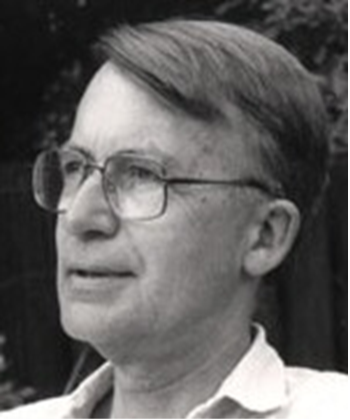
Tony Wrigley passed away on 25 February 2022. He had joined the IUSSP in 1967 and was elected the 1993 IUSSP Laureate.
Edward Anthony Wrigley was a demographer, historian, and geographer, whose work shaped the historical study of population and the Industrial Revolution. He held faculty positions at the London School of Economics, Oxford, and Cambridge. Among many honors and positions he was President of the British Society for Population Studies; Fellow and President of The British Academy; and an IUSSP Laureate. In 1996 he was appointed Knight Bachelor by Queen Elizabeth II for services to Historical Demography.
Tony Wrigley, as he was known, began and ended his career at Cambridge University. His PhD dissertation described industrial development and demographic growth in the Austrasian coalfield stretching across France and Germany. It emphasized regional analysis and the transition to fossil fuels, which were recurrent themes in his later work.
In the 1960s, Wrigley published the first demographic study of an English parish following Louis Henry’s standard for family reconstitution, and a fascinating study of London’s role in the demography of pre-industrial England. His 1969 publication of Population and History provided an updated version of the Malthusian model integrating the latest work in anthropology, sociology, statistics, economics, history, and geography.
In 1964, Wrigley and Peter Laslett co-founded the Cambridge Group for the History of Population and Social Structure, which revolutionized historical studies of the family and demography. In addition to attracting scholars from around the world, Wrigley and Laslett activated an army of volunteer local historians, who gathered data from parish registers. These data were the foundation of two landmark volumes, The Population History of England 1541-1871 and English Population History from Family Reconstitution, co-authored with Roger Schofield, Jim Oeppen, and Ros Davies. The Population History of England provided annual estimates of total population, mortality, and fertility over three centuries based on “back projection,” an extension of Ron Lee’s “inverse projection.”
Both volumes argued that rising fertility, rather than falling mortality, was responsible for demographic decline and stagnation in the later seventeenth century and rapid demographic growth in the century after 1750. Changes in fertility were due to Malthus’ ‘preventive check,’ which was driven by shifts in the age and incidence of marriage. This implied that England avoided the worst effects of runaway population growth on per capita income, and established a standard of living well above bare subsistence.
In the last decades of his long career, Wrigley returned his focus to the role played by energy sources in the transition from an “organic” economy based on agriculture to an “inorganic” economy based on fossil fuels. While he remained convinced that coal played a necessary role enabling the growth of living standards and economic opportunities, he became pessimistic about the long-run prospects of the planet and the devastating potential of modern warfare.
For all his accomplishments, awards, and recognition, Tony Wrigley remained an unassuming and gracious figure. He delighted in free-flowing conversations at morning coffee with students and colleagues in the Cambridge Group. Generations of young scholars benefited from his gentle questions and generous advice.
As a reviewer once commented, Tony Wrigley will be remembered for his considerable contribution to answering the central question of historical sociology: What is the distinctive nature of the modern world and how did it come about?
For a longer version of this obituary please visit: https://www.campop.geog.cam.ac.uk/people/wrigley/
